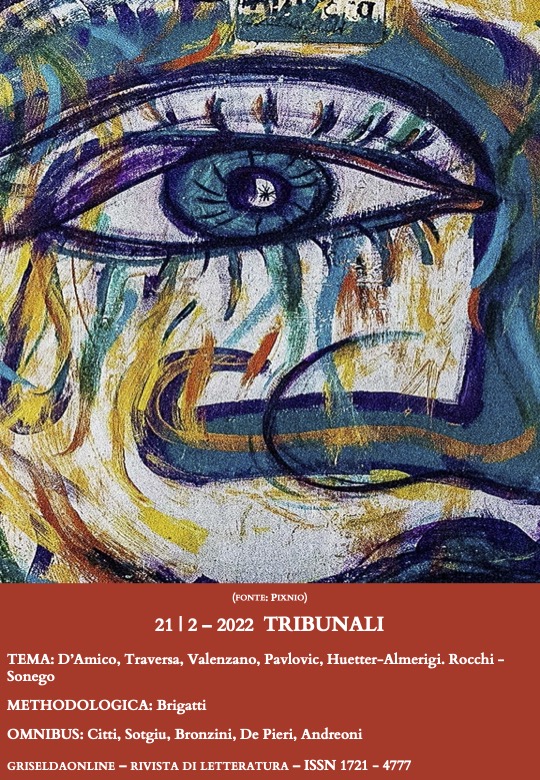Forme dell’‘ethos’ nel genere della confessione criminale
DOI:
https://doi.org/10.6092/issn.1721-4777/15437Keywords:
D’Annunzio, etica, narratologia, paradigma giudiziario, RousseauAbstract
The essay aims to analyse, from a narratological perspective, some transformations in the dialogical structures within the literary genre of the confession between the 18th and 19th century. In particular, the analysis focuses on how the ‘judicial paradigm’ of Rousseau’s Confessions, in which the model of the popular genre of mémoires judiciaires plays a key role in provoking a recognition from the narratee on the basis of a set of shared ethical values, declines with the development of the eighteenth century psychology, when the inability to take the reason as a ground for an intersubjective experience, in authors like Paul Bourget and Gabriele D’Annunzio, demands a rethinking of the presence and the absence of the reader in the text.
Downloads
Published
How to Cite
Issue
Section
License
Copyright (c) 2022 Dino Pavlovic

This work is licensed under a Creative Commons Attribution-ShareAlike 4.0 International License.





